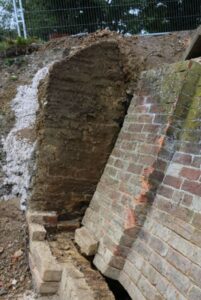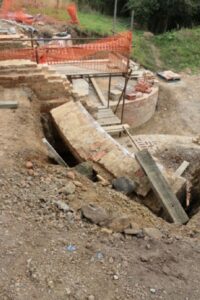Charitable trust fined following death of volunteer
A charitable trust has been fined after a volunteer lost his life during restoration work on the Wilts and Berks Canal.
Peter Konitzer was fatally crushed when a section of a wall collapsed onto him in an excavation at Pewsham locks on 24 August 2016.
The 62-year-old had been inside the excavation removing temporary propping that was supporting the wall when the section collapsed.

Wilts & Berks Canal Trust undertook the restoration work as part of its project to preserve, conserve and improve the route of the Wilts and Berks Canal.
A joint investigation by the Health and Safety Executive (HSE) and Wiltshire Police investigation found Wilts & Berks Canal Trust had failed to ensure the safety of volunteers who were working within the excavation. The temporary propping was inadequate and there was no clear method for the safe installation or removal of props during this renovation work.

The trust routinely used volunteers to assist in work to undertake tasks including clearing rubbish and overgrowth from various canal sites and general gardening type duties but had increasingly used volunteers for light construction works.
Wilts & Berks Canal Trust, of Dauntsey Lock, Chippenham, Wiltshire, pleaded guilty to breaching Section 3(1) of the Health and Safety at Work etc. Act 1974. The trust was fined £30,000 and ordered to pay £10,822 in costs at Swindon Magistrates’ Court on 24 June 2024.
HSE inspector James Lucas said: “This was a tragic and wholly avoidable incident. The situation which led to Peter’s death would not have arisen had the temporary structural works been properly planned and implemented to ensure a suitable safe system of work prior to the incident.
“It is essential that those in control of work of this nature devise safe methods of working and to provide the necessary information, instruction, and training to their workers to ensure their safety.”
This prosecution was brought by HSE enforcement lawyer Iain Jordan and supported by HSE paralegal officer Rebecca Withell.
Notes to editors:
- The Health and Safety Executive (HSE) is Britain’s national regulator for workplace health and safety. We prevent work-related death, injury and ill health through regulatory actions that range from influencing behaviours across whole industry sectors through to targeted interventions on individual businesses. These activities are supported by globally recognised scientific expertise.
- More information about the legislation referred to in this case is available.
- Further details on the latest HSE news releases is available.
- Wilts & Berks Canal Trust will also pay £6,043.16 in compensation.